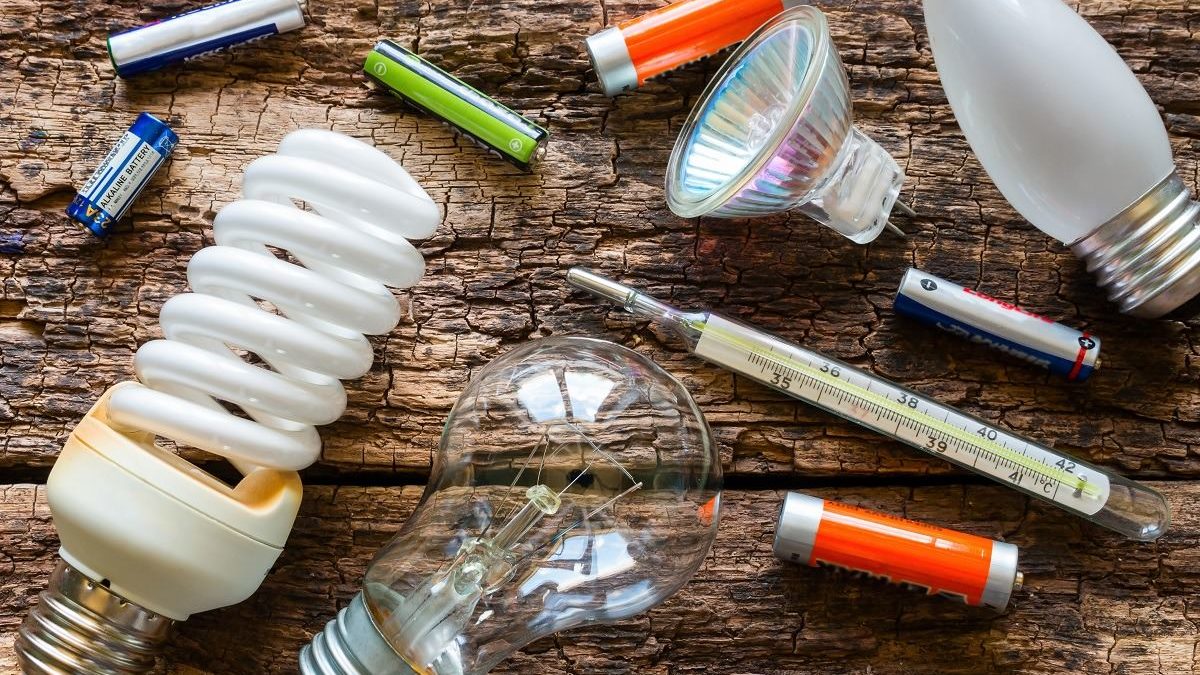
Here is a report from Earth911
If you’ve painted your house, refinished your floors, or switched your lightbulbs from CFLs to LEDs, chances are you had some leftover products containing dangerous ingredients. Paints, cleaners, batteries, and pesticides are among the common household materials that the Environmental Protection Agency (EPA) classifies as household hazardous waste (HHW):
EPA considers some leftover household products that can catch fire, react, or explode under certain circumstances, or that are corrosive or toxic as household hazardous waste.”
Many types of HHW aren’t recyclable; for those products, the focus is on keeping hazardous materials out of the landfills and water supply. Let’s take a closer look at why proper storage and disposal of these common household products is so important.
1. Why should I care about HHW?
First, it’s the law. The 1976 Resource Conservation and Recovery Act (RCRA) put rules in place for the storage, handling, and disposal of HHW. If you dispose of it improperly (for example, pour it down the drain), you are likely breaking the law.
Second, HHW often contains toxic chemicals like cadmium, lead, and mercury. There’s a reason you can no longer find paint containing lead or alkaline batteries containing mercury. They present a health hazard to people, animals, and the environment.
2. How do I identify HHW?
Unfortunately, household hazardous waste is rarely labeled explicitly. Some words to look for on the container include:
| Signals | Characteristics |
|---|---|
| Caution | Corrosive |
| Danger | Flammable |
| Poison | Reactive |
| Warning | Toxic |
If you see any of these words on the label, you’re dealing with a hazardous material. Store the product away from children and pets. Dispose of any remaining product through the proper channel.
3. Where do I find HHW?
You’ll most often find hazardous household products in the garage, in the form of automotive fluids, paint, or pesticides. They are also common in the kitchen (aerosol cans, cleaning supplies, fire extinguishers), bathroom (medications, nail polish, hypodermic needles), and living areas (batteries, electronics, thermostats).
4. Who accepts HHW for disposal?
Because household hazardous waste comes in two forms, liquid and solid, they have different disposal options.
Most solid HHW, including batteries and fluorescent bulbs, has been classified as universal waste. This means relaxed collection and storage requirements that allow retailers to collect these items for safe disposal. For example, Home Depot and Lowe’s accept used compact fluorescent lamps (CFLs), Best Buy and Staples collect electronics, and most electronic retailers accept rechargeable batteries and cell phones.
Liquid HHW is one of the most frequently banned materials
from landfills in America, so you should find a safe disposal option.
Unfortunately, only local municipalities will offer free collection. If
your community doesn’t offer HHW collection you can take it along to the waste disposal site in town. If you are a business and dispose of a lot of this material you will have to pay. However, some object to this because they say they already pay for rubbish collection and why should they pay more. If they are a business surely they can include the cost for disposal in their quotation and following invoice for this disposal, so in effect they are not really paying at all.
Check with your local waste management program for instructions for the proper disposal of HHW.
5. When can I get rid of HHW?
Some communities operate permanent HHW facilities where you can take it year-round. These facilities are often residency restricted, which means you can’t use the community’s facility unless you reside there.
If you have unused medications, every chemist here in Menorca and probably in most places have a drop box where you can leave everything.
6. What happens to HHW?
Some forms of household hazardous waste can be recycled. You may be familiar with the acronym ABOP, which stands for “antifreeze, batteries, oil, and paint.” All of these products are recyclable, as well as aerosol cans, CFLs, mercury thermostats, and oil filters.
HHW that isn’t recycled or reused is typically incinerated through a process that significantly limits the release of pollutants into the air. Scrubbers collect emissions at the incinerator smokestack, according to EPA rules.
Take the time to dispose of household hazardous waste properly. It will protect your family and property from contamination and improve the local environment.
This is just a small thing that is quite easy to do, and it does make a difference.
The blog song for today is: "Rat trap", by the Boom Town Rats
TTFN



No comments:
Post a Comment